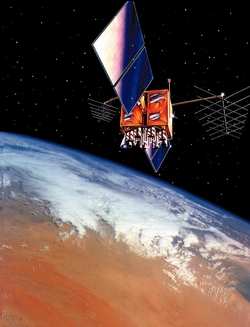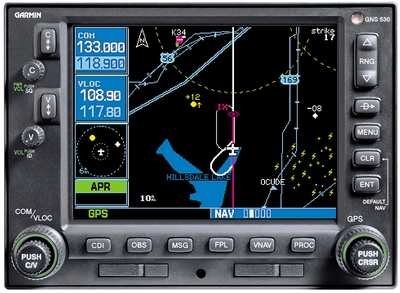Says Based On Facts, Wireless Company's Alternative Plans Lacks
Credibility
In a document released last Friday, The Coalition To Save Our
GPS presented a review of wireless company LightSquared's proposal
to allow it to continue to establish a nationwide wireless
broadband service. The group used as its primary source a
1,000-plus page report issued on June 30, 2011 by the FCC-mandated
Technical Working Group which analyzes interference from
LightSquared's proposed deployment plans in the Mobile Satellite
Service (MSS) band adjacent to the Global Positioning System
(GPS).

The report was based on LightSquared's February 2011,
description of its planned three phases for deployment: Phase 0,
Phase 1 and Phase 2. All three phases identified by LightSquared
for study used a portion of the MSS band directly adjacent to GPS,
1545.2-1555.2 MHz (the "Upper MSS band"). The working group test
results showed that use of this portion of the MSS band caused
overwhelming interference to every category of the 500 million GPS
receivers in use in the United States, from those used by
airplanes, police vehicles and ambulances to everyday consumer cell
phones and personal navigational devices.
Up to the point of the June 30 report filing, LightSquared had
repeatedly said that its proposed operations would not interfere
with GPS. Faced with the report's overwhelming evidence of massive
interference – and no doubt in order to preempt these highly
negative results -- LightSquared simultaneously released a 37-page
"Recommendation" document (RD) that it developed totally outside of
the Technical Working Group established to collaboratively study
the problem.
In that document, the coalition says, LightSquared proposed an
entirely new deployment scenario, not included in the initial scope
of the working group analysis, which would not use the Upper MSS
band at all, and a series of mitigation measures – many of
which were never disclosed or discussed during the four-month
working group study process. Further, the document tries to blame
the "commercial GPS industry" for any interference caused by its
operations, and also claims, without citation to the working group
study or any other supporting data, that its proposal will solve
interference for 99 percent of GPS receivers.

The coalition asserts that the utter failure of LightSquared's
initial deployment plans to pass interference tests raises
fundamental questions about the representations LightSquared made
to the FCC prior to its January 2011 decision that convinced the
FCC to grant the waiver and convene the interference study process
in the first place, and raises significant questions about the
credibility of LightSquared's various claims and whether they hold
up to scrutiny. The current strong indication is that whatever
LightSquared told the FCC prior to January 2011 was highly
inaccurate, to a degree that verges on negligence. These questions
logically follow from the failure of the original deployment plan:
Was LightSquared transparent in its dealings with the FCC? In other
words, what did LightSquared know, and when did it know
it?
In all of its documents and public statements, LightSquared
claims a long history of familiarity with the technical rules of
the MSS band and a wealth of technical expertise on interference
issues. LightSquared is clearly the most knowledgeable about its
own network technology, and also claims to be intimately familiar
with prior proceedings relating to MSS interference and GPS. And it
appears to claim that it has been working on these plans for years.
Yet, in February 2011 it proposed only deployment scenarios which
used the upper MSS bands, which overwhelming technical evidence
shows will cause massive interference to every GPS receiver
studied. The coalition maintains that this raises a variety of
questions: Did LightSquared not know that its proposed upper MSS
band operations would cause interference? If it didn't know, that
places its technical competence in severe doubt. Did LightSquared
know, or have very strong reason to believe, before January 2011
that massive interference would result? If so, why did it not
disclose this to the FCC? There certainly was ample available
evidence that harmful interference would result. The US GPS Council
knew, and presented testing results and analysis demonstrating this
interference to the FCC in both December 2010 and January 2011. So
did major U.S. government departments and agencies, which
communicated serious concerns to the FCC in a formal letter in
January 2011. LightSquared's reaction? It dismissed these findings
out of hand.

The Coalition To Save Our GPS contends that, since LightSquared
was completely wrong in formulating its initial deployment plans
and claiming that they would not cause interference, the company's
reassuring technical claims about its "new" deployment plan lack
credibility. LightSquared's "recommendation" document makes a
host of other inaccurate or misleading statements, and a number of
its major misstatements are discussed below. The bottom line,
coalition members say, is that "just as LightSquared was wrong in
2010 and the first six months of 2011, it is wrong now."
 Airborne-Flight Training 05.09.24: ERAU at AIAA, LIFT Diamond Buy, Epic A&P
Airborne-Flight Training 05.09.24: ERAU at AIAA, LIFT Diamond Buy, Epic A&P ANN's Daily Aero-Term (05.07.24): Hazardous Weather Information
ANN's Daily Aero-Term (05.07.24): Hazardous Weather Information Aero-News: Quote of the Day (05.07.24)
Aero-News: Quote of the Day (05.07.24) NTSB Final Report: Cessna 150
NTSB Final Report: Cessna 150 Aero-News: Quote of the Day (05.08.24)
Aero-News: Quote of the Day (05.08.24)





